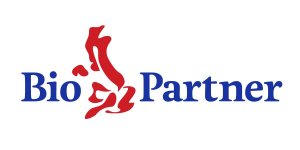
Martin Bonde

EpiTherapeutics is developing novel innovative cancer drugs based on the world leading research in epigenetics conducted by Professor Kristian Helin and his group at Biotech Research & Innovation Centre (BRIC) at University of Copenhagen.
EpiTherapeutics' development programs are focused on enzymes involved in the regulation of transcription in cancer - current programs target histone demethylases and methyltransferases. Subsequent developments may identify other potential clinical indications outside oncology.
In December 2010, Epitherapeutics signed a drug discovery collaboration with Abbott Laboratories.
Epitherapeutics employs 25 FTE and is headquartered in Copenhagen.
Epitherapeutics ApS
CEORiccardo Braglia

Helsinn is a privately owned pharmaceutical group with headquarters in Lugano, Switzerland, and operating subsidiaries in Ireland and the United States. Helsinn’s business model is focused on the licensing of pharmaceuticals, medical devices and nutritional supplement products in therapeutic niche areas. Helsinn Group in-licenses early-to-late stage new chemical entities, completes their development through the performance of pre-clinical /clinical studies and Chemistry, Manufacturing, and Control (CMC) development, and files and attains their market approvals worldwide. Helsinn’s products are out-licensed to its network of local marketing and commercial partners, selected for their deep in-market knowledge and know-how whom Helsinn assists and supports by providing a full range of product and scientific management services, including commercial, regulatory financial, legal, and medical marketing advice. The active pharmaceutical ingredients and the finished products are manufactured according to the highest quality, safety, and environmental standards at Helsinn’s GMP facilities in Switzerland and Ireland and supplied worldwide to its customers. Further information on Helsinn Group is available at www.helsinn.com.
Helsinn Healthcare SA
Managing DirectorProfessor Peter Buckel

SuppreMol, a privately held biopharmaceutical Company, is developing novel proteins to treat autoimmune diseases. SuppreMol has developed a novel therapeutic concept for the treatment of autoimmune diseases that relies on naturally produced Fc gamma receptors (FcγRs). The Company was founded in 2002 as a spin-off from the Max Planck Institute of Biochemistry.
The Company is developing SM101 for the treatment of Primary Immune Thrombocytopenia (ITP) and Systemic Lupus Erythematosus (SLE) in Phase II clinical trials. SM101 is designed to be a specific, early onset, long lasting and well tolerated treatment for autoimmune diseases such as ITP, SLE, Rheumatoid Arthritis (RA) and Multiple Sclerosis (MS).
Further building its platform of selective immunoregulators, SuppreMol is working on antibody programs targeting Fc receptors and other immunomodulatory molecules for alternative treatment strategies in autoimmune conditions.
SuppreMol GmbH
Chief Executive Officer
Dr Carlos Buesa
Oryzon is a biomarker discovery company with a dual therapeutic pipeline in oncology and neurodegeneration. Founded in 2000, and venture backed from 2002, Oryzon has a strong focus in EPIGENETIC TARGETS with a special emphasis in Histone Lysine Demethylases being a global leader on Lysine Specific Demethylase1. LSD1 has been proposed as a target for oncology, viral diseases and neurodegeneration. Two recent papers in NatureMedicine and CancerCELL stablished proof of concept data that support the use of LSD1 inhibitors in acute myeloid leukemia. Oryzon has two preclinical programs with different preclinical candidates LSD1i, one in leukemia and the other in Huntington disease. Phase I/IIa studies are expected to start in early 2013.
In Oncology, we also develop new non invasive early diagnostics tools. Our first product GynEC®-DX consists on a new set of markers for triage in endometrial cancer from uterine aspirates.
Oryzon
CEO
Patrick Burgermeister

Bioversys AG is a privately held Swiss biopharmaceutical company located in Basel that focuses on research and development of new drugs and compounds, which switch-off drug resistance within bacterial pathogens and restore the efficacy of approved antibiotics. Spun out of the ETH-Zurich in 2008, we have profound technological expertise that is based on solid IP.


